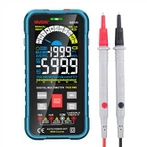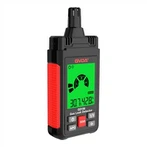What are the reasons why the pH meter electrode is easily damaged?
Many customers have encountered such a problem. The pH meter used on the site will be damaged after a short period of time. It is not the same as the manufacturer said that the use time is so long. Is it the electrode produced by the manufacturer? something wrong? If you try another electrode from another manufacturer, this situation may also occur. What's going on? After careful consultation, you will find that the medium you are measuring has poisoned the electrode.
The electrodes currently produced on the market are flow reference pH meter electrodes. The formation of electrical channels depends on the micro-osmotic pressure of the electrolyte in the electrode, so that the electrolyte penetrates into the measurement solution. When the medium pressure or concentration is high, the fluid replacement channel is not smooth, or there are air bubbles, etc., it may hinder the leakage of the electrolyte and increase the intermediate impedance of the electrical path. If the medium reverses into the electrode of the pH meter, it will pollute the salt bridge or even It may cause chemical reaction with electrolyte or internal electrode (eg AgCl sulfide→Ag2S) to poison the electrode.
In a strong oxidizing medium, the loss of alkaline substances (mainly monovalent cations) in the sensitive glass membrane will damage the hydration layer and cause poisoning of the electrode of the pH meter. An acid-resistant pH meter electrode can be selected. The special process measures (specially added ion formula) adopted in the manufacturing process have enhanced the ability of the glass membrane to resist acidosis. At the same time, the zero potential of the electrode corresponds to pH0=2, so that the Linearity is corrected.
The pH meter electrode does not have a good linear relationship outside of pH2~pH9, and it is easy to form a large amount of hydronium ions H3O in a strongly acidic solution, so that the number of H on the surface of the pH meter electrode decreases relatively and the pH value increases. Na in the strong alkaline medium will also participate in the exchange process between the H in the solution and the H on the electrode hydration layer, resulting in an increase in the electrode potential of the pH meter and a low pH value.






